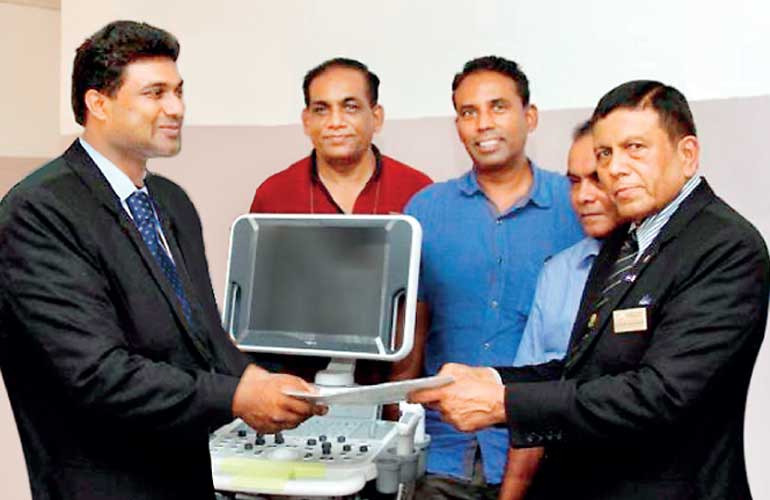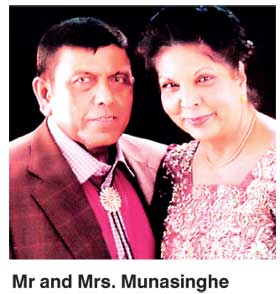Saturday Feb 28, 2026
Saturday Feb 28, 2026
Tuesday, 21 June 2016 00:03 - - {{hitsCtrl.values.hits}}
Rotary is a worldwide organisation of more than 1.2 million business, professional, and community leaders committed to provide humanitarian services, encourage high ethical standards in all vocations, and to advance goodwill and peace around the world.
Rotary Club of Golders Green in London United Kingdom has come forward to help combat the Chronic Kidney Disease (CKD) in Sri Lanka which has ravaged the island for years. Leonard Munasinghe was the President of Rotary Club of Golders Green for the year 2014-15 and he has extended special concern over this devastating disease in Sri Lanka and come forward to help in the way Rotarians can.
CKD is a mystery disease widely prevalent in the poverty-stricken districts of Anuradhapura, Polonnaruwa, and Badulla and it has so far claimed over 20,000 lives leaving over 400,000 sickened. Those who are in between 15-70 years of age are mostly affected. Although majority of those affected are male paddy farmers and agricultural labourers, there are now a growing number of women and children being affected by CKD.
 Handing over the first scanner
Handing over the first scanner
In order to help combat this disease, Rotary International had approved the Global Grant of $54,900 for purchase and installation of three ultra sound colour scanners for early diagnosis of Chronic Kidney Disease (CKD) in Sri Lanka.
Initially, the Rotary Club of Golders Green Project was to donate one scanner to the remote hospital in Kebithigollawa in the District of Anuradhapura as the purchasing price was quite high. “Due to the participation of RC of Colombo West in Sri Lanka and Medical Aid to Sri Lanka Organization, we were able to purchase three colour scanners for three deserving hospitals including Karapitiya and Kandy,” Munasinghe asserted.
Rotary International had realised the urgency in approving the grant when they learnt that 12 to 14 CKD patients were dying each day  in the North Central Province (NCP). About 5,000 people were dying every year before they reached the age of 49. Most of the bread-winners of the region were suffering from CKD and the relatives were unable to take them for treatment to the only well-equipped hospital in Anuradhapura town as it was far away and the families were too poor to buy bus tickets. The only way to cure the disease was by early diagnosis to ascertain origin of CKD of each patient and at what stage the disease was. The disease is multifactorial in origin and only those who have been diagnosed early could be saved.
in the North Central Province (NCP). About 5,000 people were dying every year before they reached the age of 49. Most of the bread-winners of the region were suffering from CKD and the relatives were unable to take them for treatment to the only well-equipped hospital in Anuradhapura town as it was far away and the families were too poor to buy bus tickets. The only way to cure the disease was by early diagnosis to ascertain origin of CKD of each patient and at what stage the disease was. The disease is multifactorial in origin and only those who have been diagnosed early could be saved.
According to Rotary Club of Colombo West, which was closely monitoring the progress of the installation, the equipment was handed over on 21 May to Kebithigollawa Hospital first. Handing over to the Kandy Teaching Hospital and Karapitiya Teaching Hospital took place on 28 May. As requested by RC Colombo West, RCGG joined the handing-over ceremony.
As the originator of this great project, Munasinghe had decided to advance the Sri Lanka annual trip to May from December, and will attend with his wife Selina. He will be giving a full report to the Club on his return.